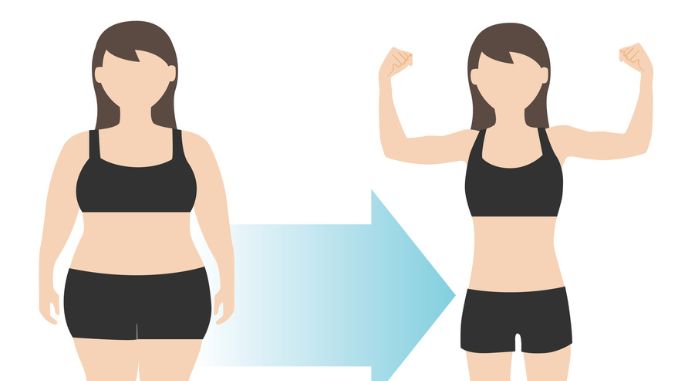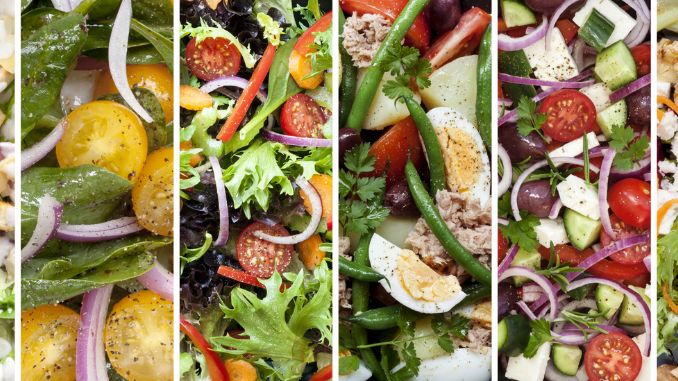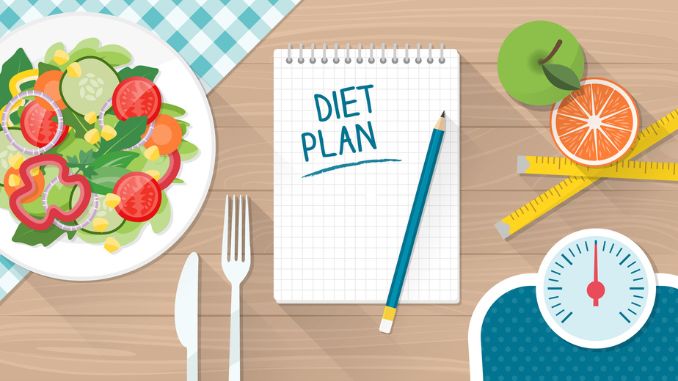10 Common Weight Loss Mistakes and How to Avoid Them

Last updated on May 27th, 2025 at 10:50 pm
Losing weight and maintaining a healthy weight is a goal many strive for, but it’s often more challenging than anticipated. Despite putting in the effort, many people still struggle to achieve lasting results. One major reason for this could be common weight loss mistakes that are easy to overlook. Moreover, understanding and avoiding these mistakes can be crucial for achieving sustainable fat loss and maintaining a healthy body composition.
1. Stress
Chronic stress can increase cortisol levels, which promote fat storage, particularly belly fat, and make it harder to lose weight. This can lead to weight gain, especially around the midsection.
How to Avoid: Practice stress-relieving activities like exercise, meditation, or hobbies. Regular resistance training, lifting weights, and physical activities that burn calories help reduce stress and support weight loss by promoting muscle mass and boosting metabolic rate.
2. Gut Health

Poor gut bacteria can impair digestion and metabolism, making it harder to lose body fat and maintain a healthy weight.
How to Avoid: Improve gut health by consuming fermented foods like yogurt, kimchi, and sauerkraut, or by taking probiotics. Additionally, this supports better digestion and metabolism, helping you burn calories more effectively and reduce fat gain., which in turn supports digestion and metabolism.
3. Extreme Calorie Cutting
Drastically cutting too many calories [1] is one of the common weight loss mistakes that can slow down your metabolism, decrease muscle mass, and ultimately hinder fat loss. Consuming too few calories can lead to nutritional deficiencies and a decrease in metabolic rate.
How to Avoid: Instead of drastically restricting calories, aim to eat fewer calories than you burn while still consuming enough nutrients to preserve lean muscle. Additionally, focus on a moderate calorie deficit to support long-term fat loss without risking muscle loss or slowing your metabolism.
4. Lack of Sleep
Sleep deprivation disrupts hunger-regulating hormones, leading to overeating and cravings for unhealthy foods. It’s one of the overlooked weight loss mistakes that can prevent fat loss and promote weight gain.
How to Avoid: Prioritize getting 7-8 hours of quality sleep each night. A good night’s sleep helps regulate appetite hormones, reducing the risk of binge eating and promoting fat loss. Also, sleeping well supports lean muscle growth and recovery, which burns more calories throughout the day.
5. Neglecting NEAT (Non-Exercise Activity Thermogenesis)
Not moving enough throughout the day is another one of those sneaky weight loss mistakes. Sitting for long periods reduces the calories you burn, making it harder to maintain a healthy weight. Not incorporating daily movement can contribute to gaining weight and slowed fat loss.
How to Avoid: Increase daily activity outside of formal workouts by walking more, standing while working, or doing household chores. These activities help burn calories and support overall fat loss and improved body composition.
6. Not Drinking Enough Water
Dehydration can be mistaken for hunger, causing unnecessary snacking and overeating, which leads to weight gain.
How to Avoid: Drink plenty of water throughout the day. Aim for at least 8 cups a day to stay hydrated. Drinking water before meals can help reduce cravings, helping you eat fewer calories. Hydration also supports metabolism and enhances the efficiency of resistance exercises.
7. One-Size-Fits-All Diets
Following someone else’s diet may not work for you. Everyone’s body responds differently to foods and calorie-restricted diets. Additionally, restricting calories too much or eating foods that don’t suit your body can result in weight gain or an unhealthy body fat percentage.
How to Avoid: Experiment with different nutritious foods and eating plans to find what works for your body. Moreover, aim for a calorie-restricted diet that includes healthy fats, lean proteins, and fiber-rich vegetables. Track your body's response to see how much fat or muscle mass you’re losing.
According to Dr. Veeranuch Rojyindeelert, an internal medicine and clinical nutrition specialist, a common weight loss mistake is choosing the wrong types of food—even if you're eating small portions. Many people believe that low-fat or diet-labeled foods are helpful, but these can actually be high in sugar and calories, which may lead to weight gain instead of loss.
8. Assuming All Salads Are Healthy

Many salads [2], especially those with creamy dressings, cheese, and bacon, are high in calories and can derail weight loss efforts. Additionally, these high-calorie additions can result in too many calories, which can prevent fat loss.
How to Avoid: Opt for light dressings and lean proteins like chicken or tofu, and avoid junk food toppings like bacon and croutons. Focus on healthy foods that support fat loss, like leafy greens, avocado (in moderation), and nuts for healthy fats.
9. Unrealistic Expectations
People often have unrealistic expectations [3] about how quickly they can lose weight. Moreover, expecting rapid weight loss is one of the common weight loss mistakes that can lead to frustration, unhealthy behaviors like restricting calories too much, and ultimately giving up on the weight loss journey.
How to Avoid: Set realistic, achievable goals for your weight loss. Understand that fat loss and achieving a healthy weight takes time. Track your progress with measurements of body weight, body composition, and strength rather than just focusing on the number on the scale to avoid these weight loss mistakes.
10. Not Having a Support System
Starting a weight loss journey alone can be isolating and challenging. Without support, it’s easier to fall off track, especially when faced with cravings or tough days.
How to Avoid: Find a friend, family member, or online community to share your weight loss journey with. Having support can keep you motivated, help with accountability, and increase your chances of success. Support systems also help you stay consistent with your resistance training and other fitness goals.
Meal Planning and Preparation

- Planning and preparing meals in advance can help support weight loss efforts and reduce stress.
- Incorporating a variety of foods, such as fruits, vegetables, and whole grains, can help support overall health and weight loss.
- Moreover, avoiding processed and packaged foods, which are often high in added sugars and unhealthy fats, can help support weight loss.
- Cooking at home, using healthy ingredients and cooking methods, can help support weight loss and overall health.
Conclusion:
Losing weight isn’t just about eating less or trying the newest diet. It’s about knowing what mistakes to avoid and making small, healthy changes that last.
Be patient, stay active, get enough sleep, and find what works best for you. Don’t forget to ask for help or support when needed.
With the right steps and mindset, you can reach your goals and feel healthier over time.
Want to Drop Pounds and Feel Incredible in Just 7 Days? Check out our Best Foods that Rapidly Slim & Heal – you won’t believe how fast they work!
FAQ's
Dos and don'ts for Weight loss?
Dos for Weight Loss:
- Eat more whole, healthy foods (like fruits, vegetables, lean proteins, whole grains).
- Drink plenty of water.
- Get enough sleep (around 7–8 hours).
- Move more—walk, stretch, or do any activity you enjoy.
- Eat slowly and stop when you feel full.
- Be patient—real progress takes time.
- Keep a food or habit journal if it helps you stay aware.
Don'ts for Weight Loss:
- Don’t skip meals, especially breakfast.
- Don’t follow crash or extreme diets.
- Don’t rely only on the scale—track how you feel, too.
- Don’t expect fast or perfect results.
- Don’t cut out entire food groups unless for medical reasons.
- Don’t compare your journey to others.
What is the golden rule for losing weight?
Burn more calories than you eat—create a small, steady calorie deficit through a mix of healthy eating and movement. But do it in a balanced, realistic way.
What is the 30 30 30 rule for weight loss?
It’s a popular routine that suggests:
- Eat 30 grams of protein
- Within 30 minutes of waking up
- Followed by 30 minutes of light exercise (like walking)
This may help with appetite control and energy, but it’s not a magic solution. It can work for some people but not everyone.
What are some common mistakes people make when trying to lose weight?
- Eating too few calories—this can slow your metabolism.
- Not eating enough protein—important for staying full and keeping muscle.
- Focusing only on weight and not how you feel or look.
- Expecting quick results and giving up too soon.
- Drinking calories from juice, soda, or alcohol.
- Skipping exercise or moving too little.
- Falling for diet fads or “miracle” products.
Rick Kaselj MS, is a leading kinesiologist and injury specialist as well as co-creator of the best-selling Unlock Your Hip Flexors program. Rick creates exercise programs that help people heal injuries and eliminate pain, so they can go back to living a full, active, healthy life.









